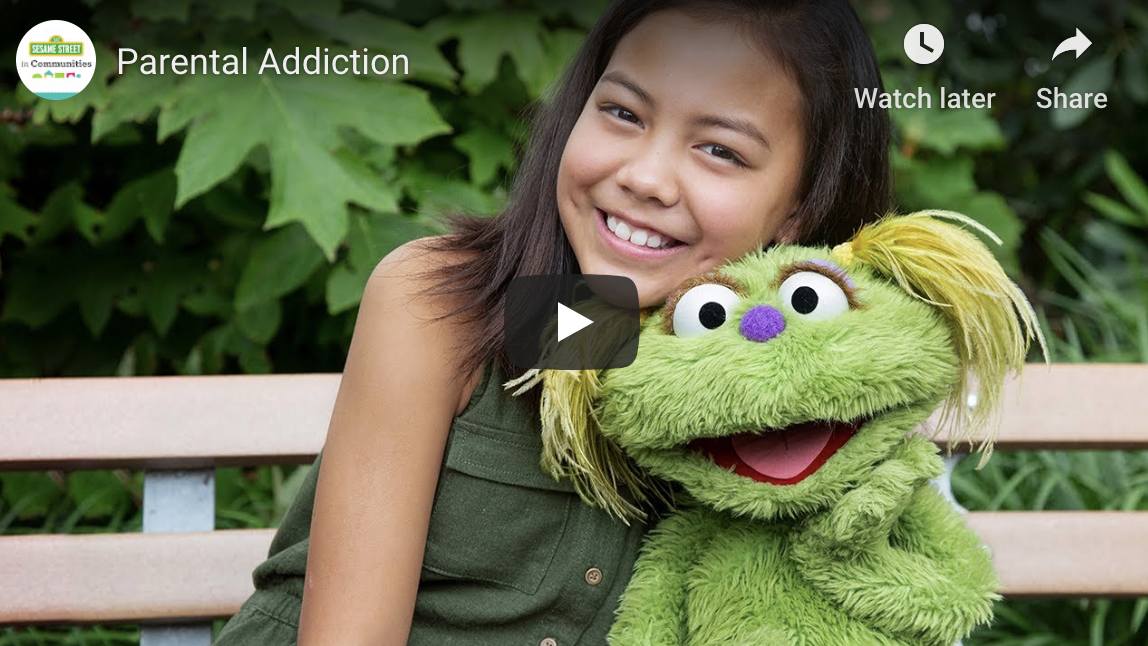It is sad to think that children need to discuss and understand addiction, but in today’s world (amid the overwhelming opioid crisis) it is something that cannot be ignored. To help make these issues more relatable, the famed PBS series Sesame Street has introduced a character whose mother is struggling from a painkiller dependency. And to their credit, it is being handled delicately and effectively.
A green puppet character named Karli was first introduced to Sesame Street audiences back before the summer started. Portrayed as a six-year-old, Karli’s storyline began with her arriving to the Street to live with foster parents.
The backstory of Karli’s family was never fully revealed until this month. Now, however, it has come to light that Karli entered foster care because her mother is battling a dependency. This, of course, is very reflective of scenarios that are happening in real life (and one we covered recently in our blogs).
Sherrie Westin, president of the social impact division of Sesame Workshop, spoke to the press about the introduction of this new storyline.
“What Karli does is she helps bring to life an issue that a lot of people think of as a grown up issue, and don’t understand the impact on young children,” Westin explained. “In the United States, there are nearly 6 million children under the age of 11 living with a parent who has a substance abuse problem. That’s why we’re launching this new parental addiction initiative.”
So far, Karli’s appearances have been mostly online; with YouTube clips and moments available through the Sesame Street landing page. The videos link out to a special section of site, which focuses on parental addiction and provides access to several resources.
There is even a special welcome clip featuring the show’s famous red monster, Elmo. Click below to watch it in full…
Many recovery advocates have praised the way Sesame Street is handling this sensitive topic. For one thing, addiction is referred to as a “sickness” or a “disease” that people truly can’t control. It then discusses the ways “helpful grown ups” (or treatment facilitators) can step in and get people to stop using.
Karli, herself, may have put it best when describing the emotional hurdles young people have to face if their parents are struggling.
“If you’re going through a tough time, I’ve learned that it’s OK to be sad or mad or scared because, well, sometimes when you love someone so much, and when they’re going through a tough time, sometimes it makes you feel sad and scared, but that’s OK,” Karli explained. “It’s OK to talk about those things. It feels good to talk about those things.”







